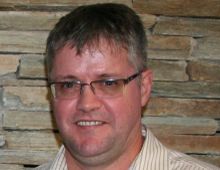SAEON in the media
|
The following article appeared in SciDev.Net of 28 October 2010:
Africa to get continent-wide data centre
Africa has to start looking beyond the data, conference hears
[CAPE TOWN] South Africa is spearheading activities to collect and curate research data about the African continent in an effort to shrug off its data-poor image.
A prototype of the World Data Centre on Biodiversity and Human Health in Africa was presented at The Committee on Data for Science and Technology's (CODATA) international conference in Cape Town this week (24–27 October).
The data centre, due to be launched early next year, will join the ranks of more than 50 world data centres — most of which are located in the United States, Europe and East Asia — which collect data in subjects like astronomy, geomagnetism and solar activity. The centres are currently being integrated into an overarching World Data Service.
Data on biodiversity and health in Africa is currently scattered around the world. The new centre aims to collect all this data into a single, online, resource that could be useful for African policymakers.
It will help researchers identify gaps in existing data and find historical data to compare to new findings, said Wim Hugo, a data expert from the South African Environmental Observation Network and one of the centre's architects.
Users will also be able to layer different sets of data on top of one another, he said. For example, researchers could be able to call up a map of climate change projections (e.g. rainfall, temperature) and then the data on mosquito populations to get an idea of where mosquitoes are likely to be affected by climate change.
South Africa is also taking the lead in other data-gathering efforts. This month, the US NASA space agency sent more than 30 terabytes (30,000 gigabytes) of free Earth science satellite data to South African researchers to support sustainable development and environmental applications.
But as Africa becomes more data-rich, the challenge will be to manage and interpret the data, said Lidia Brito, head of science policy at UNESCO (the UN Educational, Scientific and Cultural Organization). "We need to have the eyes to look beyond the data," she said at the meeting.
At its outset, the centre will draw on data sets currently hosted in South Africa and the United States. As it evolves, African organisations will be encouraged to add their data to it.
But the continent's research culture may need to change before data can be effectively shared.
There is a tendency to control access to data, perhaps because of concerns over its mis-interpretation or because "data is power", said Daisy Selematsela, executive director of the Knowledge Management & Evaluation Directorate at South Africa's National Research Foundation, Pretoria.
"There is a fear of what the data will be used for. We don't have data policies in Africa, and it's one of the things we need to look into."
The article was reprinted as “AFRICA: Continent-wide data centre by next year” in University World News – Africa Edition and as “Africa to shrug off data-poor image” in Africa – The Good News.












